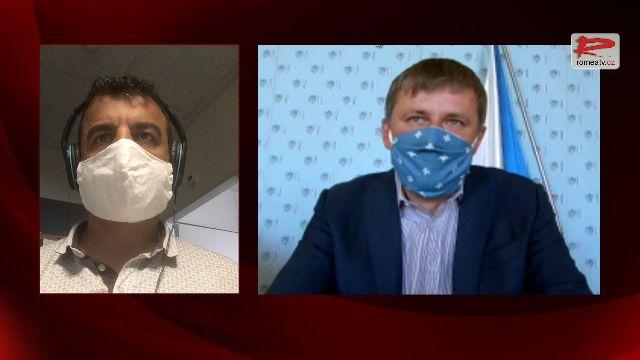UK: Thousands of Czech citizens, mainly Roma, don't have the documents they need to apply for settled status

Czech Television has reported that thousands of Czech citizens living in Great Britain are at risk of not managing to apply for settled status after Brexit – mainly Romani people. Failure to do so means they will have to return to the Czech Republic.
The emigrés lack proper documentation and their children do not have Czech birth certificates because they were born in the UK and never registered with the Czech authorities. The situation has now been worsened by the COVID-19 pandemic, as the Czech Embassy and Consulate have had to postpone appointments by almost three months.
The Czech Television program describes one example of a Czech citizen who has successfully applied for settled status, 52-year-old Renata, who is Romani. The rest of her family is dealing with the fact that their documents are invalid.
“The embassy has a long waiting list, so if we make an appointment, it could be for half a year from now, even, or three quarters of a year from now. I have all my children here, our entire family is here, so it would certainly be bad if one [ended up having to return to the Czech Republic],” Renata tells Czech Television.
“In that case we would all have to return,” the emigré says in the television program. She works in a packing plant in Bradford, England and does not want to return to the Czech Republic.
Renata tells the interviewer that she wants a better education for her children and complains of the discrimination in the Czech Republic. “[In the UK] if you have money, you’ll find a place to live, but that’s not what it’s like in Bohemia,” she says.
“There, you can have money, but they say to you: ‘We don’t want Cikány,'” the Romani woman says. She wants to remain in England even despite the fact that negotiating with the British authorities is, in her view, tedious.
“If you want an appointment, anywhere, you wait a terribly long time. When you have a problem and call somewhere, nobody takes an interest, they don’t address it,” Renata tells the interviewer.
“In that sense, it’s bad here,” the emigré says. Bradford also presents a very complex reality, according to the Czech TV report.
British police receive criminal reports that Romani people living there are the victims of fraud and threats made against them by landlords of Pakistani origin. “They threw me and my four children out of our home in the rain,” a Romani woman from Slovakia named Margita tells Czech Television about her previous landlord.
She doesn’t want to leave either, though. “It’s better in England, there is poverty in Slovakia, there is no work there, the children do not have the same situation as they do here,” Margita tells Czech Television.
“The schools are better here than in Slovakia,” Margita believes. Czech Roma frequently live in impoverished neighborhoods in the United Kingdom.
The apartments and the buildings themselves in such localities are substandard. Czech Television interviews Renáta Plachetková of the Czech Labor and Social Affairs Ministry, a social worker visiting vulnerable communities of Czech citizens in the UK to aid them with handling their documents because of Brexit.
“The British side, whether that be the local authorities or the police, is not inclined to aid our fellow Czech citizens,” Plachetková says. “I frequently encounter the fact that they tend not to assist those of our fellow Czech citizens who end up in adversity, they want to indirectly get rid of them.”
The Bradford local authority denies that is the case. “We want to make sure all our EU citizens and their families have the right to live and work in our district,” the Bradford District Council wrote in a statement to Czech Television.
“We highly appreciate them,” the statement claims. The City of Bradford also told Czech Television that with the police, the city combats all forms of discrimination and does not tolerate any hate speech in one of the most ethnically diverse cities in Europe.
